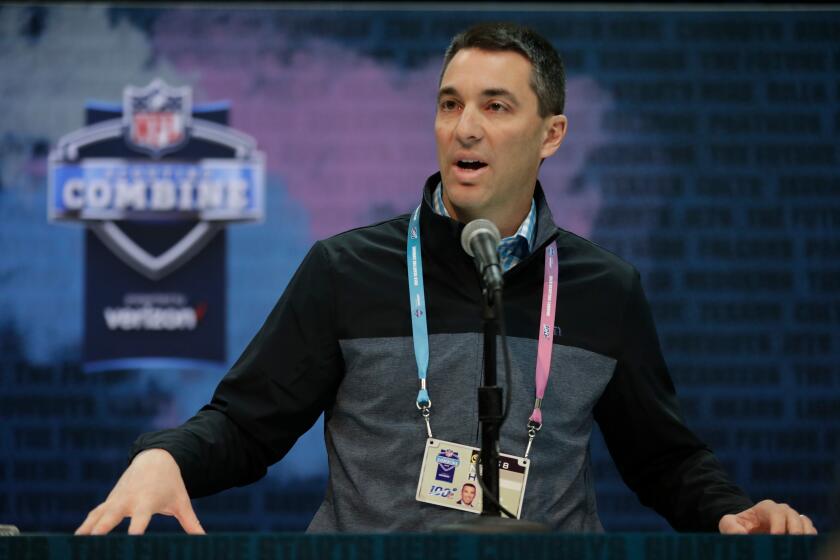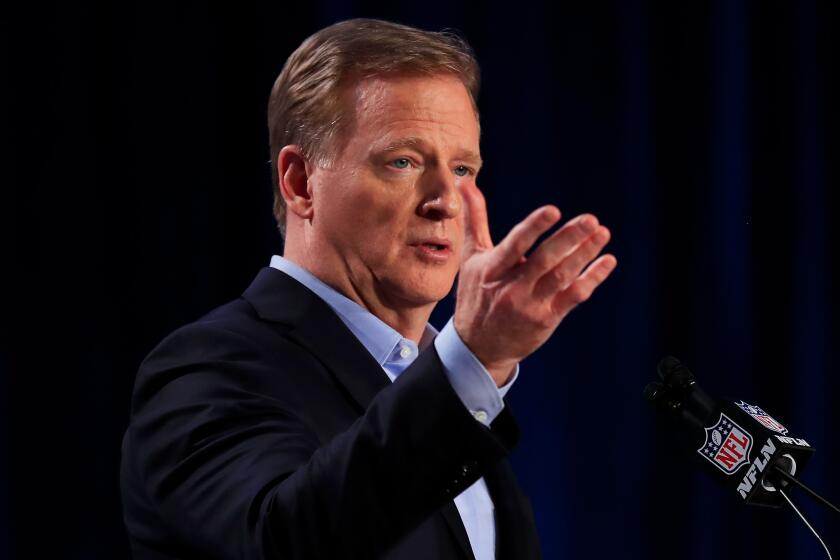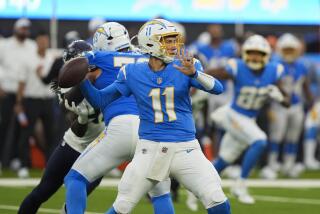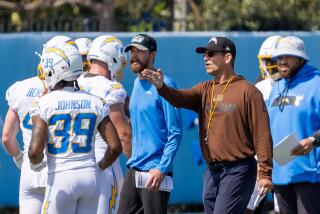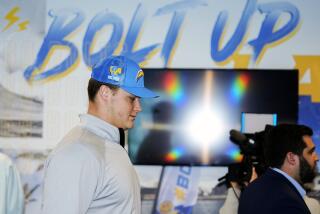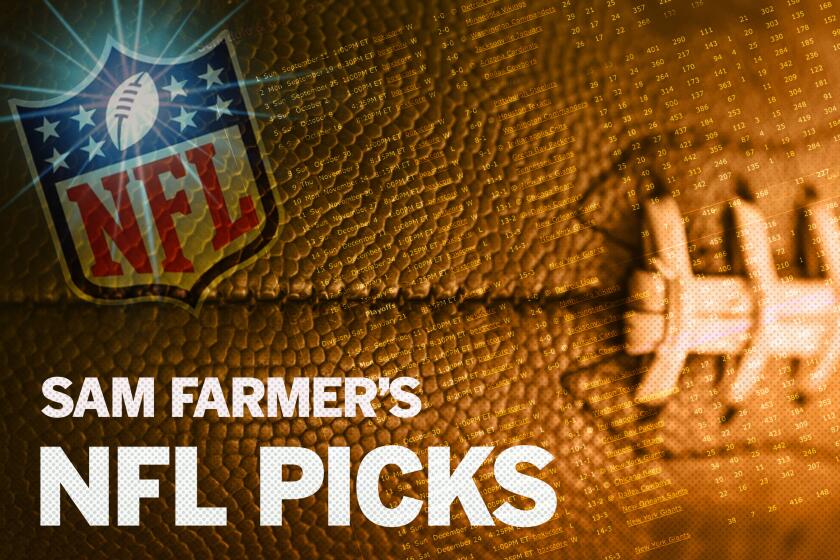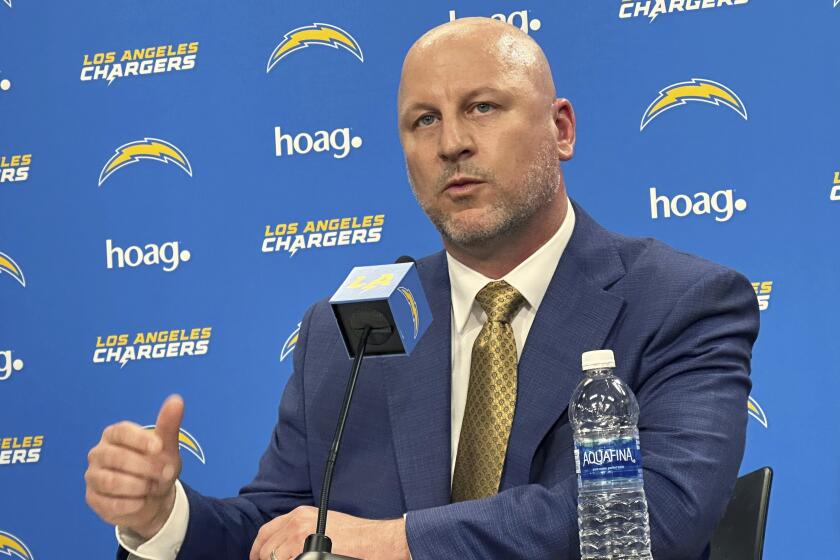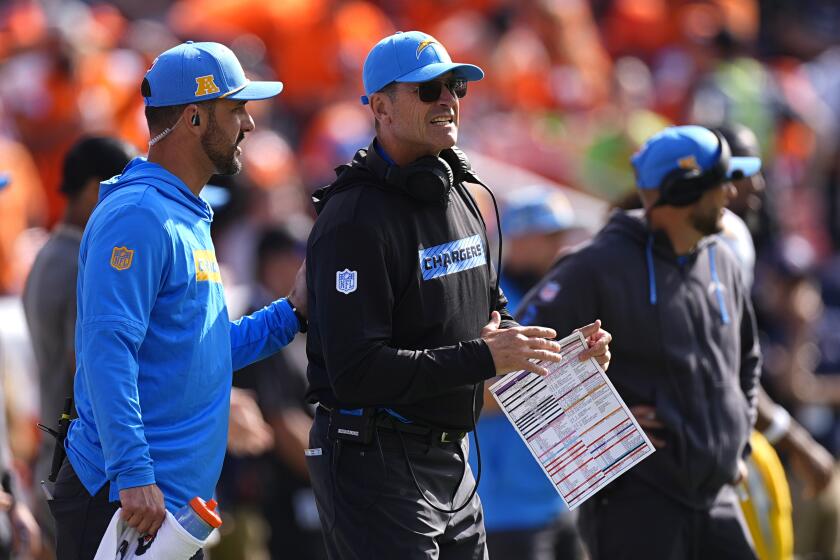With draft over, Chargers must tackle left side of offensive line
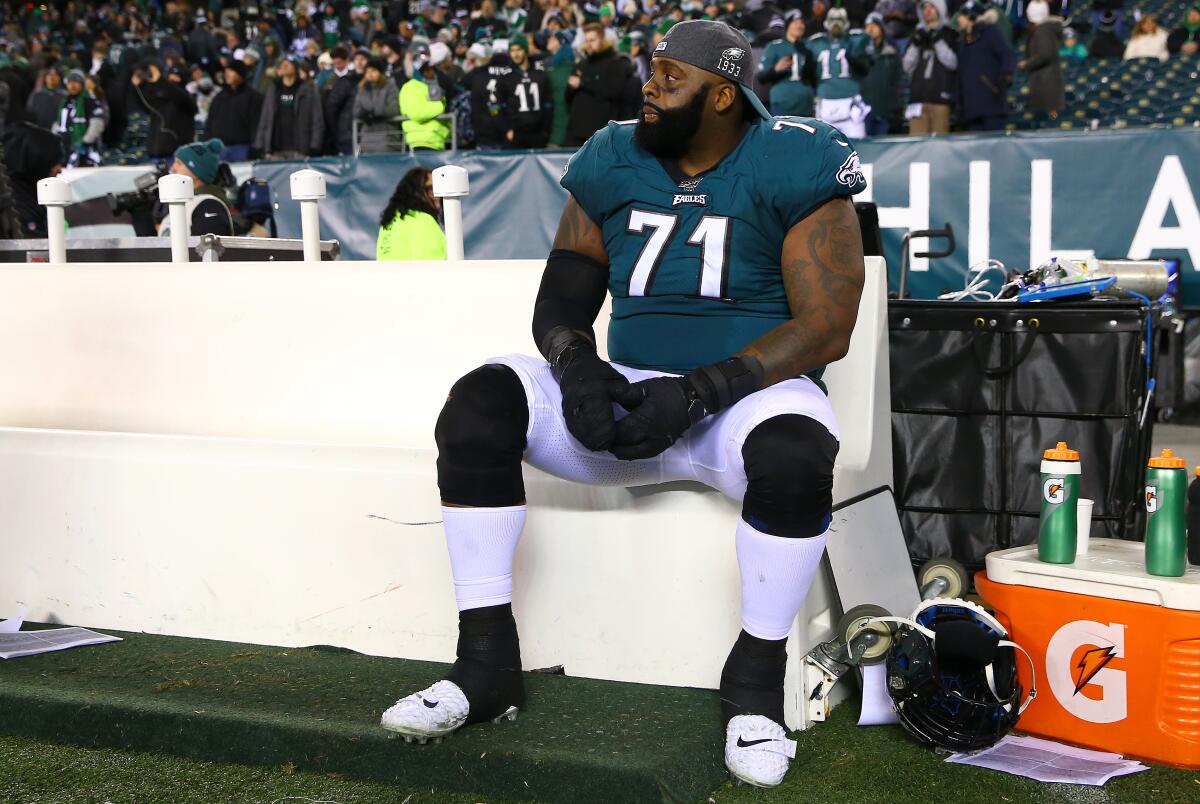
The Chargers added defensive speed, offensive weapons and, most significant of all, potentially their next franchise quarterback.
A productive draft followed a stretch in which general manager Tom Telesco traded for a right guard and, in free agency, acquired much-needed pieces at right tackle, linebacker, cornerback and defensive tackle.
All of which makes some nice promises about the 2020 season but none of which addresses the most obvious of lingering questions: left tackle.
In rebuilding an offensive front that struggled last year, Telesco traded veteran starter Russell Okung to Carolina for five-time Pro Bowl guard Trai Turner.
As of today, the spot remains unsettled, with Trey Pipkins and Sam Tevi the leading candidates to replace Okung. Telesco recently mentioned Forrest Lamp as an option, as well.
“I never want to go into a draft feeling like I have to take a certain position,” coach Anthony Lynn said, when asked about not selecting an offensive tackle. “It’s just a bad feeling because you don’t control the draft.”
The coronavirus forced the NFL to hold the draft virtually, but the Chargers and Rams were impressed with how smoothly everything unfolded.
Lynn described himself as being “comfortable enough” with the Chargers’ situation at left tackle.
But the team has the necessary cap space and still could add a veteran free agent, with Jason Peters probably representing the best fit. Lynn has called Peters “intriguing.”
At 38 and a 16-year veteran, Peters spent the past 11 years with Philadelphia. If brought in, he could start while serving as a mentor to Pipkins, a third-round pick in 2019.
Coming out of Division II Sioux Falls, Pipkins was drafted as a longer-term project. He ended up having to appear in 13 games, including three starts, as a rookie because of injuries.
His continued development was dependent on this current offseason program, which now has been reduced to a remote exercise in classroom work because of the COVID-19 pandemic.
“I guess this may even out,” Telesco said. “He’s not going to get as much work hands-on this spring as we would have liked, but he also got more snaps last year than we had anticipated. So maybe that will even out in the end.”
Both Telesco and Lynn have mentioned how the Chargers’ evolving offense is expected to take some pressure off the offensive line this season.
After 14 years with Philip Rivers starting at quarterback, the team is moving on, first to veteran Tyrod Taylor and eventually — the Chargers hope — to Justin Herbert, the No. 6 pick Thursday.
Both Taylor and Herbert are more mobile than Rivers, the mere threat of either bolting from the pocket something a Chargers offense hasn’t featured in years.
They also have hired a new offensive line coach in James Campen, whose schemes are expected to boost the play up front.
The 2020 NFL draft had some rough edges, but the ingenuity of the broadcast could offer a glimpse into the new normal for sports.
“The offense is going to change a little bit for how we do some things,” Telesco said. “I think it’s going to fit a little better with some of the guys that we have.”
Tevi, a sixth-round pick in 2017, has started the past two seasons at right tackle. That job now belongs to Bryan Bulaga, a former Green Bay Packer signed in free agency.
Because of injuries, Lamp has appeared in only nine games since drafted four rounds ahead of Tevi three years ago. He has been playing guard and made two starts on the left side in 2019.
The Chargers’ roster also includes Trent Scott, who has started at tackle on both sides at times the past two years. The team is looking at possibly moving Scott to guard.
“This offseason could be very, very interesting how we develop our players and how we are going to do it when we actually get our hands on them,” Telesco said. “We’ll see how it plays out.”
More to Read
Go beyond the scoreboard
Get the latest on L.A.'s teams in the daily Sports Report newsletter.
You may occasionally receive promotional content from the Los Angeles Times.

